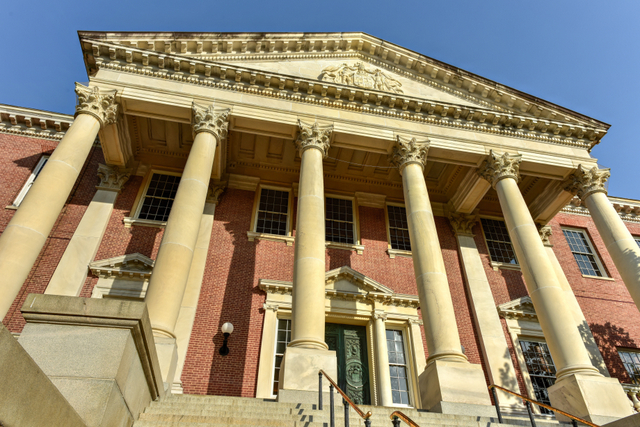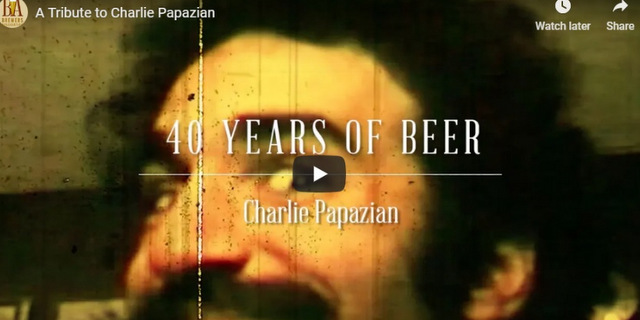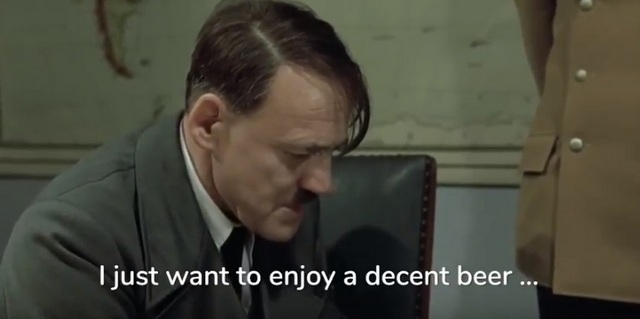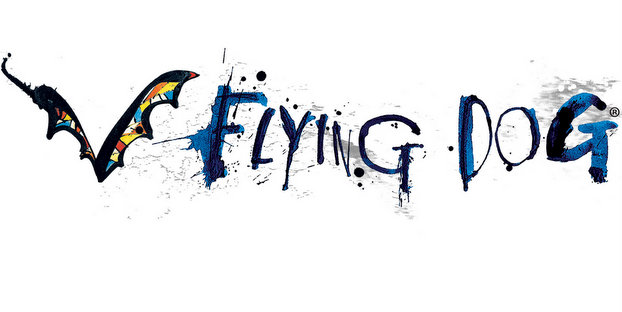
There’s no argument that Maryland has a rich brewing history. The state beer tree traces its history back to America’s colonial days when Fordham Brewing Co. was founded in Annapolis, Md., in 1703; Fordham was reborn as a craft beer in 1995, eventually relocating to Dover, Del., now called Fordham and Dominion Brewing Co. In between, Maryland has spawned a slew of great beer brands we know and love — from Natty Boh and Colt 45 to Heavy Seas and DuClaw. Fun Fact: Colt 45 is actually named after running back Jerry Hill, who was No. 45 on the 1963 Baltimore Colts football team.
Yet over 300 years, Maryland’s laws haven’t evolved nearly as quickly as the beer industry. That’s evident to Flying Dog Brewing Co., based in Baltimore. Chief Executive Jim Carus recently stated that the brewing brand has placed its eye-popping $54 million expansion plans on hold because of legislation regarding state brewery regulations. A lot of this animosity stems from Maryland House Bill 1283, which is a law focused on Class 5 Maryland breweries (Class 5 is a license specific for brewery production facilities — definition here) and regulates everything from taproom hours to on-premise beer sales.
In its final version (passed into law but not signed by the governor), HB 1283 recognized the right of Class 5 breweries to do a number of things: engage in contract production; provide up to 18-ounce samples during tours or events on site; sell beer to-go at the brewery (as long as the individual participated in a guided tour or other aforementioned event); sell beer that was not manufactured on-premises under certain circumstances; and it protects existing taproom hours for Class 5 breweries that filed notice with the TTB before April 1, 2017. It also expands the barrel limit for on-premises sales to 2,000 barrels per year (3,000 if you’re willing to cut a deal with your distributor — see below).
Those restrictions were the good parts. The final version also included these roadblocks, which as you can read are very protective of the distributor’s role in the three-tier process, which distributors feel is being threatened by giving beer makers more selling power. Here’s a good summary from DC Beer:
-
It gives county authorities a new power to prohibit all on-premises consumption;
-
Requires large breweries, those with more than 1,000,000 barrels of annual production, that want to sell beer at their tap room which was made off-premises, to purchase that beer from a wholesaler first (essentially that requires Guinness [which is building a brewery in Baltimore] to buy their own beer at wholesale in order to sell through the taproom);
-
Requires any Class 5 brewery that wants to sell between 2,000 and 3,000 barrels a year through their taproom, to pay a wholesaler for the last 1,000 barrels of that beer;
-
Prohibits any Class 5 brewery that has filed notice after April 1, 2017, from operating tap room hours outside of 10 a.m.-10 p.m., Monday through Sunday.
But there’s progress still being made. Last week, Maryland Comptroller Peter Franchot said that a task force he headed up found that state beer laws are moving in the wrong direction (you can watch Franchot in the video below at Denizens Brewing Co.). He concluded Maryland’s “regulations pose an existential threat to the industry’s future growth in Maryland; and with it, the jobs, economic activity, tax revenue and tourism opportunities generated by this community of innovators and entrepreneurs. In the absence of comprehensive reform, Maryland’s reputation within the national craft brewing industry will continue to suffer and the economies of our neighboring states will benefit at our expense.”
The task force pulled together an extensive 41-page document that lays out their argument. Here’s an excerpt from that report.
In response to the passage of House Bill 1283 during the 2017 Legislative Session and the strong public outcry for reforms of Maryland’s antiquated beer laws, Comptroller Peter Franchot established the Reform on Tap Task Force in April 2017.
With the goal of modernizing Maryland’s beer laws and promoting economic growth across the State, Comptroller Franchot announced the appointment of 40 task force members — representing every region of the state, as well as breweries, distributors, restaurants, bars and retailers, consumers, and local and state elected officials.
The task force, which first convened on May 24, 2017 at Johns Hopkins University, has held eight public meetings, with each meeting focused on laws and regulations governing the manufacturing, distribution and sale of craft beer in Maryland. A schedule of task force meetings appears in Appendix A.
Additionally, the task force held two public meetings at Evolution Craft Brewing Company in Salisbury and Denizens Brewing Company in Silver Spring to give consumers a platform to share their views and insights on Maryland’s alcohol laws with the task force.
Members of the task force also were encouraged to attend the Northeast Hop Selection and Market at Flying Dog Brewery on September 27, 2017. This annual event brings together hop growers and brewers to sample locally-grown hops and build relationships.
In announcing the appointment of the task force, Comptroller Franchot noted that “Current laws and regulations pose an existential threat to the industry’s future growth in Maryland; and with it, the jobs, economic activity, tax revenue and tourism opportunities generated by this community of innovators and entrepreneurs. In the absence of comprehensive reform, Maryland’s reputation within the national craft brewing industry will continue to suffer and the economies of our neighboring states will benefit at our expense.”
Governor Hogan, in announcing his decision to allow House Bill 1283 to become law without his signature, wrote the following in a letter to the General Assembly: “It is clear from the debate surrounding [House Bill 1283] that Maryland’s beer laws — dating back to the end of Prohibition – are in need of reform as they threaten to reverse the incredible growth of our state’s craft brewing industry… I urge the General Assembly to explore modernizing our state’s brewery laws, and lift legislative impediments to Maryland’s craft brewers so that their industry can continue to grow and thrive.”
Additionally, the Task Force solicited feedback from industry stakeholders and the public, all with the goal of identifying the best solutions that will facilitate the growth and success of Maryland’s craft beer industry and other independent businesses.
Read the entire, 41-page report right over here. Come on! You have the time.





Leave a Reply
You must be logged in to post a comment.